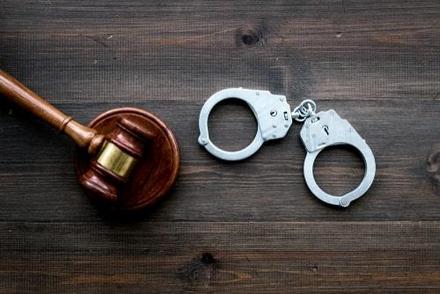TELEPHONES ANSWERED 24 HOURS A DAY
Overview of the Federal Criminal Process
 Federal criminal defense attorneys are key in ensuring that individuals accused of federal crimes receive legal representation and a fair trial. Navigating federal criminal proceedings demands a proper understanding of the legal process since each stage has distinct considerations.
Federal criminal defense attorneys are key in ensuring that individuals accused of federal crimes receive legal representation and a fair trial. Navigating federal criminal proceedings demands a proper understanding of the legal process since each stage has distinct considerations.
A highly experienced Chicago criminal defense lawyer can offer you proper representation to minimize or eliminate the potential penalties you may face. Contact our firm immediately if you are facing allegations in federal court.
Steps Involved in Federal Criminal Processes
Each criminal case is unique, and the specific procedures may vary depending on the circumstances. But generally, you can expect federal criminal cases to follow these steps.
Investigation
First, federal criminal cases begin with investigations conducted by various law enforcement agencies such as the Federal Bureau of Investigation (FBI). This step involves gathering evidence, interviewing witnesses, and collecting relevant information necessary for prosecutors to review the case.
Charging
Once the investigation is complete, the next step is determining whether there is enough evidence to file charges. The prosecutor decides after reviewing the information gathered during the investigation and determining the appropriate charges to file.
Initial Hearing/Arraignment
After the charges are filed, the defendant appears before a jury for an initial hearing. The charges are read, and the defendant is informed of their rights and asked to enter a plea.
Discovery
Discovery is the process by which the prosecution and defense exchange information and evidence to be presented during the trial. This step allows both parties to prepare their case and ensures a fair and transparent trial.
Plea Bargaining
In some cases, the prosecution and defense may engage in the process of negotiating a plea agreement. This allows the accused to plead guilty to some charges and receive a reduced sentence in return. The next possible step of a trial is then closed, and the case proceeds to a sentencing hearing.
Preliminary Hearing
If the accused pleads not guilty, the preliminary hearing comes next. At this stage, the prosecution presents evidence to demonstrate that there is enough probable cause to proceed with the charges and a trial.
Pre-Trial Motions
Prosecution and defense teams may file pre-trial motions before the trial. These motions address common issues, such as the change of venue, suppression of certain statements, or the dismissal of charges. Your Chicago criminal defense attorney will file the appropriate motions.
Trial
If the case proceeds to trial, the prosecution presents evidence and arguments to prove the defendant's guilt beyond a reasonable doubt. At the same time, the defense challenges the prosecution's case and presents evidence of the defendant's innocence.
The defendant may be acquitted, meaning the jury finds them not guilty because the prosecution could not prove their guilt beyond a reasonable doubt. They may also be convicted and sentenced based on the severity of the crime. However, if the defense team believes there were legal errors or civil rights violations during the trial, they can submit an appeal to have the verdict overturned or the trial rehearse.
Contact a Chicago, IL, Federal Defense Attorney Today
If you are facing federal criminal charges, it is in your best interests to contact a federal defense attorney right away to ensure your rights are protected. Law Offices of Hal M. Garfinkel LLC, Chicago Criminal Defense Attorney is well-versed in federal law and has a proven track record of defending many clients in federal court. Contact our office today to schedule a consultation with a Chicago, IL, federal criminal defense lawyer.




